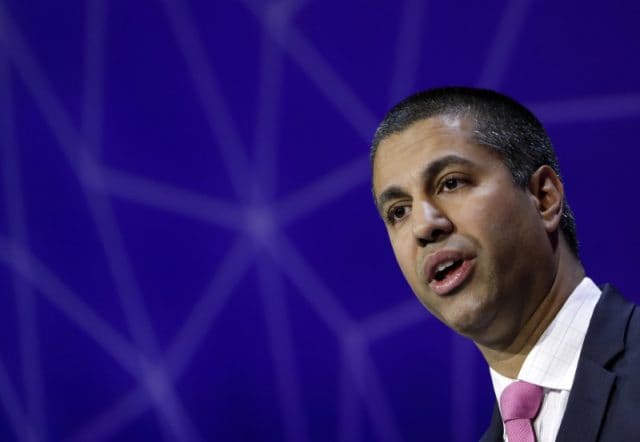
FILE PHOTO: The logo of Verizon is seen at a retail store in San Diego, California April 21, 2016. REUTERS/Mike Blake/File Photo
(Reuters) – Verizon Communications Inc on Thursday reported its first-ever quarterly loss of subscribers, even as it offered an unlimited data plan, raising questions on whether the No. 1 U.S. wireless carrier may need a larger acquisition than Yahoo to diversify its business.
Verizon has been struggling to fend off smaller rivals T-Mobile US Inc and Sprint Corp in a maturing market for U.S. wireless service, and in February offered an unlimited data plan for the first time in more than five years.
While it has pursued other revenue streams, including a $4.48 billion deal for Yahoo Inc’s core business, analysts have questioned if it should pursue a more transformative combination.
“We continue to believe that the company needs a strategic transaction to support their wireless business for the long-term,” analysts at New Street Research said in a note.
Meanwhile, Verizon’s main competitor AT&T Inc plans to diversify its business through an $85.4 billion acquisition of Time Warner Inc, which would give it control of cable TV channels like HBO and other coveted media assets.
Verizon’s shares were down 1.2 percent at $48.33 in midday trade.
Earlier this week, Verizon Chief Executive Lowell McAdam said in an interview with Bloomberg News that he is open to deal talks with companies ranging from Comcast Corp to Walt Disney Co.
On Thursday, Chief Financial Officer Matthew Ellis clarified the comments, saying that while the company would consider deals that are in the interest of shareholders, it is confident in its assets.
“The ecosystem is constantly changing, and if there’s somebody who comes to us with an idea of how we can kind of leapfrog forward in that environment, we’re going to listen to them,” Ellis said in an interview with Reuters. But he added, “We are very confident with the strategy that we have.”
In the first quarter, Verizon said it lost 307,000 retail postpaid subscribers or those who pay a monthly bill. Analysts on average were expecting net additions of 222,000, according to market research firm FactSet StreetAccount.
Churn, or customer defections, among wireless retail customers who pay bills on a monthly basis, increased to 1.15 percent of total wireless subscribers, compared with the average analyst estimate of 1.03 percent, according to FactSet.
Ellis noted that churn rose in the first half of the quarter but came down in response to the relaunch of unlimited plans. “It really was a tale of two halves,” he said.
But analysts viewed the results as disappointing.
“They badly missed on every important subscriber metric, and it just underscores that the wireless business is a severely growth-challenged business at the moment,” said Craig Moffett, an analyst at MoffettNathanson in an interview.Net income attributable to Verizon fell to $3.45 billion, or 84 cents per share, in the first quarter ended March 31, from $4.31 billion, or $1.06 per share, a year earlier. Excluding items, earnings per share was 95 cents.
Total operating revenue fell to $29.81 billion from $32.17 billion a year earlier.
According to Thomson Reuters I/B/E/S, analysts had expected adjusted earnings per share of 99 cents and revenue of $30.77 billion.
(Reporting by Anjali Athavaley in New York; Editing by Saumyadeb Chakrabarty, Bernard Orr).


 Subscribe
Subscribe






